Insurance and Legal Responsibility for Water Damage
Understanding your insurance and legal responsibilities for water damage is essential. Homeowners insurance typically covers accidental water damage, but exclusions exist, like gradual damage from neglect or flood damage. You should report incidents promptly to not jeopardize your claims. For renters, insurance protects personal belongings and includes liability coverage. If you’re a tenant, act quickly to report any damage to avoid legal liability. It’s wise to review your policy and consider additional coverage options. By knowing these aspects better, you can ensure sufficient protection for your home. Discovering other crucial details can make a significant difference in your coverage choices.
Understanding Water Damage Liability
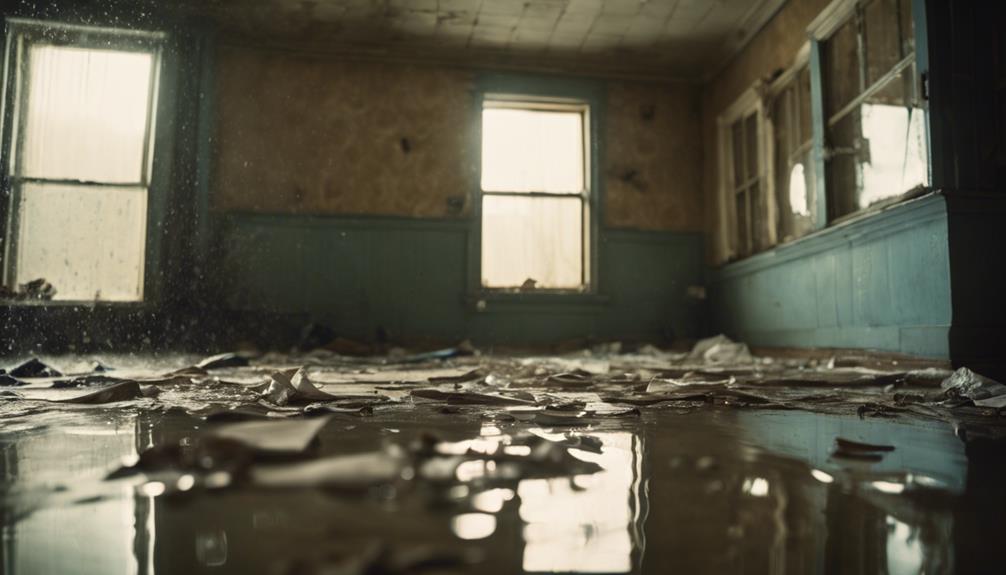
When water seeps through your ceiling from a burst pipe, understanding your liability can be a lifesaver. You need to grasp how water damage claims work under your homeowners insurance policies. Typically, these policies include liability coverage, protecting you against lawsuits for unintentional water damage to another property.
This coverage for water usually applies to accidental incidents, like a malfunctioning appliance, but it doesn’t cover neglect or flooding. Quick action is essential to prevent further damage and ensure that claims are addressed in a timely manner, especially in emergencies where 24/7 availability ensures assistance at any hour.
It’s crucial to know that standard homeowners policies often provide a basic liability coverage limit of $300,000 for water damage claims. If you experience an incident, report it promptly to your insurance company. Timely reporting is key, as delays can jeopardize your claims and reduce your coverage.
Also, familiarize yourself with the specific terms and exclusions of your policy to ensure you’re adequately protected. Understanding these details helps you navigate your legal responsibilities and ensures compliance with local regulations.
Types of Water Damage Coverage
Understanding the types of water damage coverage can help you make informed decisions about your insurance needs. Water damage coverage typically protects you from incidents like burst pipes, overflowing sinks, or malfunctioning appliances, which cause sudden and accidental damage.
Homeowners insurance usually covers water damage legal liability for harm caused to others, with basic liability limits often set at $300,000.
However, it’s essential to note what damage usually isn’t covered. Gradual damage due to neglect or poor maintenance typically falls outside standard coverage. Additionally, flood damage requires separate flood insurance, as standard policies don’t protect against this risk.
If you’re renting, your renters insurance can cover water damage from incidents like toilet overflows, provided negligence isn’t involved.
Moreover, personal liability coverage may extend to your legal responsibilities for damages incurred, giving you an extra layer of protection.
Always read your policy carefully to understand specific exclusions and limits, as claims can be denied if damage arises from negligence or deliberate actions. Being aware of these details can save you from unexpected financial burdens in the event of water damage.
Importance of Renters Insurance
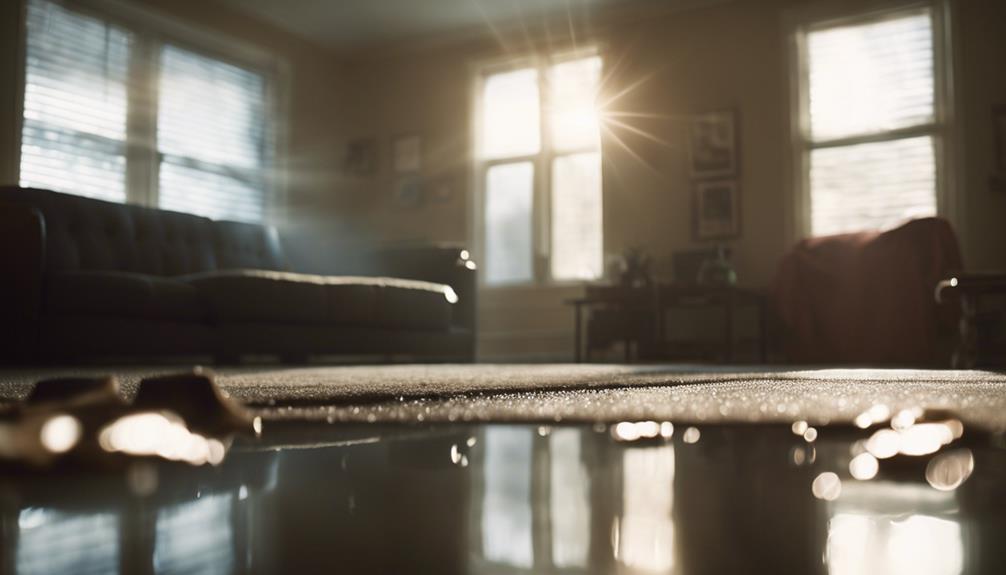
Renters insurance is essential for anyone living in a rental property, as it offers vital financial protection against unexpected events, including water damage. Without this coverage, you could face hefty out-of-pocket expenses for damages to your belongings and potential liability claims.
Here are four key reasons why renters insurance is important:
- Financial Protection: Renters insurance covers your personal belongings against damage from water incidents, like a broken pipe or an overflowing bathtub.
- Liability Coverage: Many policies include liability coverage, protecting you from legal claims related to water damage incidents that may affect other tenants or the property itself.
- Common Issue: Approximately 25% of home insurance claims involve water damage, highlighting the need for coverage in rental situations.
- Policy Limits: It’s crucial to review your policy to understand coverage limits, ensuring you have adequate protection for your specific needs.
Reporting Incidents to Landlords
Promptly reporting water damage incidents to your landlord is key to preventing further issues and ensuring repairs are handled efficiently. When you notice any signs of water damage, acting quickly can save you from bigger headaches later on. Not only does timely reporting allow for quick repairs, but it also helps in documenting the incident for insurance claims.
Here’s a simple checklist to follow when reporting water damage:
| Action | Details |
|---|---|
| Document the Damage | Take photos and write a description of the issue. |
| Notify Your Landlord | Use preferred communication methods stated in your lease. |
| Follow-Up | Keep a record of your communication. |
| Review Lease Terms | Understand your responsibilities regarding maintenance issues. |
| Check Insurance Policy | Ensure coverage aligns with the reported damage. |
Flood Insurance Necessity
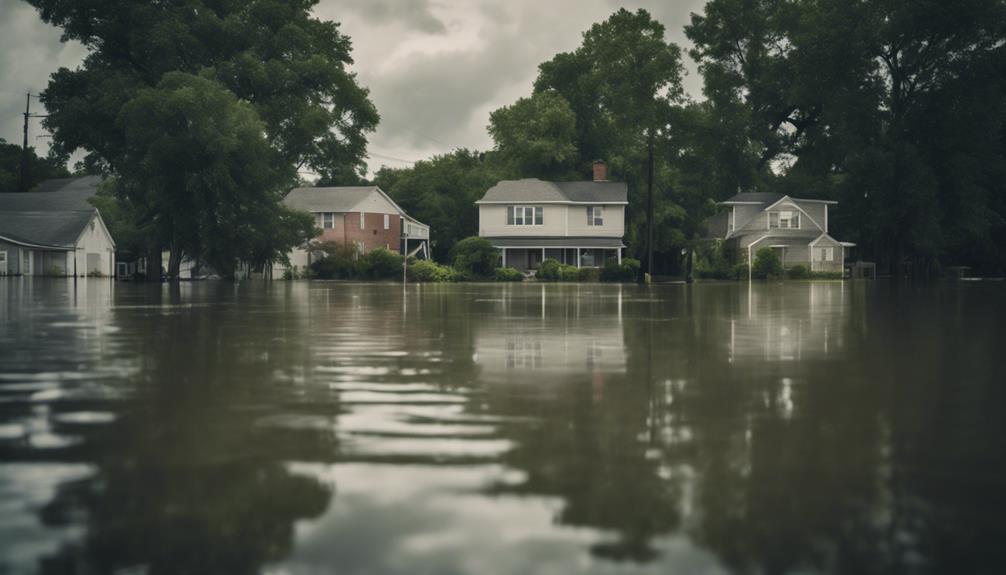
Flood insurance is essential for protecting yourself from potential financial losses due to water damage caused by flooding, which isn’t typically covered by standard homeowners or renters insurance.
To ensure you’re adequately protected, consider the following points about flood insurance necessity:
- Separate Coverage: Standard homeowners policies don’t cover flood damage. You’ll need a dedicated flood insurance policy for protection.
- National Flood Insurance Program: The NFIP offers flood insurance that covers residential and commercial properties, providing up to $250,000 for buildings and $100,000 for contents.
- Risk Awareness: About 20% of flood insurance claims come from properties outside designated flood zones, making it vital to assess your risk even in low-risk areas.
- Waiting Period: Flood insurance policies often have a 30-day waiting period before coverage kicks in, so it’s crucial to secure your policy well before a potential flooding event.
Legal Responsibilities of Tenants
When it comes to water damage, tenants have specific legal responsibilities that can significantly impact their living situation. You’re typically required to promptly report any incidents to your landlord to mitigate further damage and potential legal liability. If you neglect this duty, you could face consequences, especially if the damage worsens due to your inaction.
Additionally, depending on your lease agreement, you might be held responsible for water damage caused by negligence, such as failing to maintain plumbing fixtures. Many rental agreements include clauses that make tenants liable for damages, including those from leaks or overflows, unless covered by your insurance.
It’s crucial to understand your renter’s insurance policy, as it can protect you from personal property damage resulting from water incidents. However, landlord insurance usually covers structural damages.
Common Exclusions in Coverage
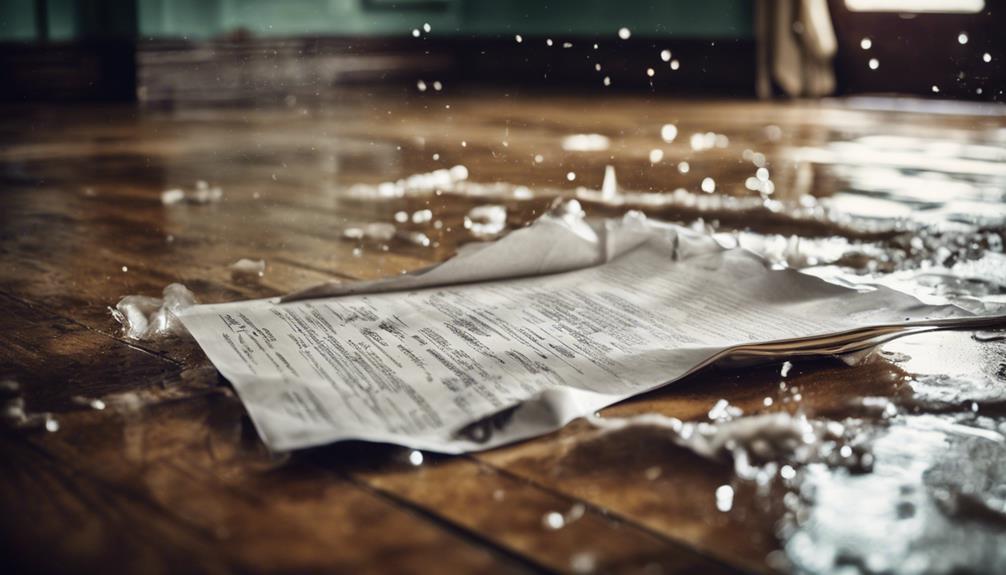
Understanding common exclusions in coverage is essential for renters to avoid unexpected costs. While your water damage insurance might cover certain incidents, several key exclusions can leave you financially vulnerable.
Here are four common exclusions you should be aware of:
- Flood Damage: Most standard coverage policies exclude damages resulting from natural disasters like floods, requiring separate flood insurance for protection.
- Gradual Damage: Issues caused by long-term neglect, such as poor maintenance or wear and tear, are typically not covered.
- Sewer Backups: Damage from sewer backups or overflows often isn’t included in standard policies, although you may purchase optional coverage for these scenarios.
- Negligence: If water damage results from your negligence—like leaving windows open during a storm or failing to maintain your plumbing—you could find your claim voided.
Awareness of these common exclusions helps you make informed decisions about your coverage policies and ensures you’re adequately protected against unforeseen damages.
Always review your policy and consider supplemental insurance if necessary.
Steps to File a Claim
In the event of water damage, knowing how to file a claim can make a significant difference in your recovery process. Follow these steps to ensure you navigate the claims process effectively:
| Step | Action |
|---|---|
| Document the Damage | Take photographs and write descriptions of all affected areas. |
| Notify Your Insurance Provider | Report the incident to your provider as soon as possible. Timely notification can affect your claim outcome. |
| Provide Necessary Evidence | Offer repair estimates and receipts to support your claim. |
Before filing, it’s essential to understand your insurance policies, including limits and exclusions. This knowledge helps ensure your situation is covered. After submitting your claim, don’t hesitate to follow up with your insurance agent. They can advocate on your behalf for a timely resolution.
Enhancing Your Coverage Options
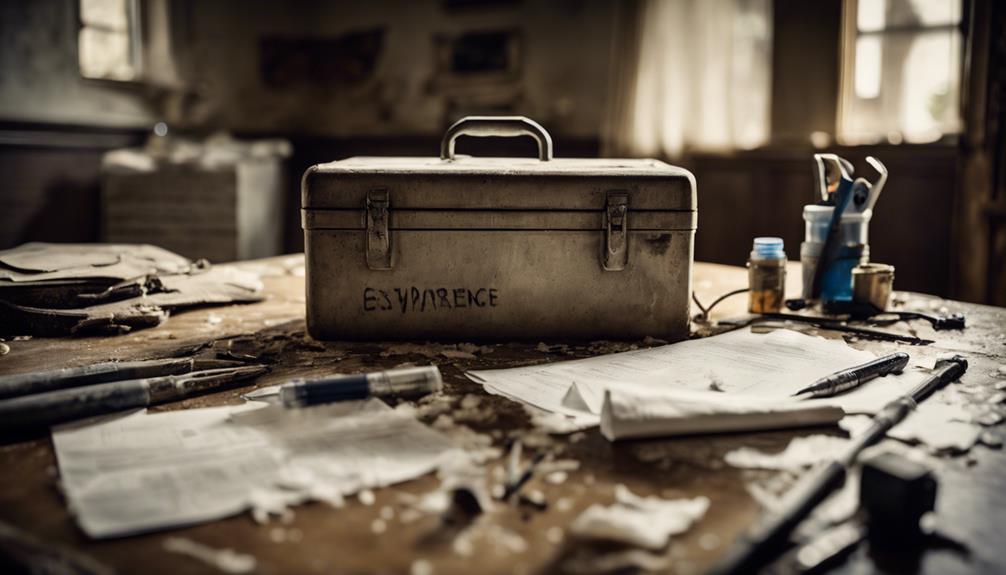
Navigating the complexities of insurance can be daunting, especially after dealing with water damage claims.
To enhance your coverage options and protect yourself from financial risks, consider the following steps:
- Review Your Policy: Check if your current insurance policies include water damage legal liability coverage. If it’s not included, ask about adding it as a rider.
- Explore Umbrella Policies: Look into umbrella insurance policies. They can provide expanded coverage limits and broader protection against water damage claims beyond standard renters or homeowners insurance.
- Assess Additional Premiums: Increasing your water damage liability coverage may come with an additional premium, but it can significantly mitigate the financial fallout from unexpected incidents.
- Consult Insurance Agents: Reach out to insurance agents for expert advice. They can help you understand your coverage options, including any exclusions or limitations, and suggest beneficial additional riders.
Preventing Water Damage Incidents
To prevent water damage incidents, you need to stay proactive in maintaining your home’s plumbing and appliances. Regularly inspect your plumbing systems for leaks and wear, as 25% of home insurance claims arise from water damage due to plumbing failures.
To minimize the risk of sudden leaks, consider installing water leak detection systems and automatic shutoff valves.
Maintaining gutters and downspouts is crucial to ensure proper drainage and prevent roof leaks, which are common sources of water damage claims. Educate everyone in your home about best practices, like not overloading appliances and properly maintaining fixtures, to further reduce the risk of water-related incidents.
Additionally, schedule routine maintenance checks for appliances that use water, such as washing machines and dishwashers. Catching potential issues early can prevent costly damage and protect your investment.
Understanding your insurance policies is also vital; while renters insurance may cover certain water damage incidents, it’s essential to know what’s included.
Additionally, legal liability insurance can help you manage potential claims related to water damage. Staying proactive not only protects your home but also ensures you’re prepared for any unforeseen incidents.
Conclusion
In conclusion, staying informed about your renters insurance and water damage liability is crucial for protecting yourself and your belongings. Make sure you understand what’s covered and consider additional flood insurance if needed. Always report any incidents to your landlord promptly to ease the claims process. By taking proactive steps to enhance your coverage and prevent potential damage, you can safeguard your rental space and enjoy peace of mind.